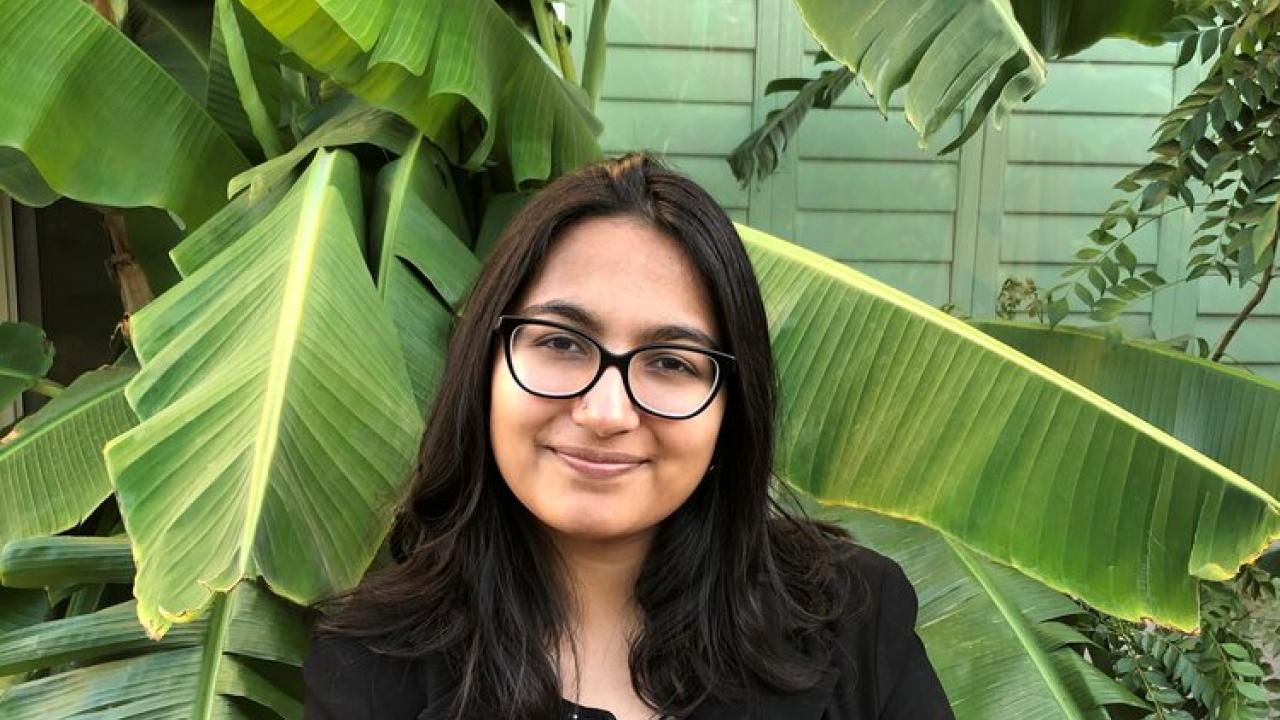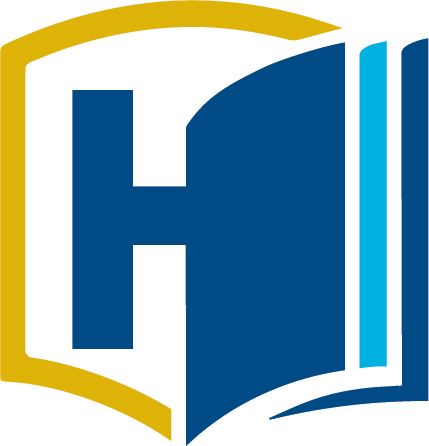
Biomedical Research, the MD/PhD Track, and the Lessons of Star Trek:
Meet Maya Mysore '22, the UHP’s Newest Goldwater Scholar
UHP student Maya Mysore has earned a Goldwater Scholarship for the coming academic year. The prestigious, federally endowed award encourages students to pursue careers in the fields of mathematics, natural sciences and engineering. Mysore is among the 410 students awarded Goldwater Scholarships for the 2021-2022 academic year, and one of two UC Davis recipients along with cell biology major Keely Ji.
A biomedical engineering major, Mysore’s research interest is in cellular-level medical solutions for chronic diseases. She plans to earn an MD/PhD with the intention of practicing medicine and running a medical research lab with a focus on developing technologies to treat chronic illnesses that will help patients to live longer, better lives. “Since I expect my work to require surgical implantation, having a knowledge of surgical procedures would allow me to be a liaison between the device development team and the surgeons who would then implant it,” she says. “For example, “if I work on immunosuppressant gel implants for the rest of my life, then it would be valuable to have a strong background in a medical field such as rheumatology or geriatrics.”
Three Research Environments and the Covid Pivot
Mysore began her research career in the Collins Lab, where she studies cells called neutrophils and their relevance to treating diseases such as rheumatoid arthritis and multiple sclerosis. In the student-run BioInnovation Group, where Mysore is vice president, she led a project based on cell encapsulation via hydrogels. And through an internship in the cell culture lab at Genentech, she learned how the manufacturing process translates research and development into useful products. Together, she says,
“These three experiences have allowed me to practice the fundamental, translation, and manufacturing-scale aspects of research.”
With labs closed to in-person work during the pandemic, her work has pivoted in different ways. She shifted to computational work with the Collins lab, developing a neural net to improve the lab’s cell segmentation programs. Her Biolnnovation Group work shifted to a literature review to develop the tissue engineering aspect of their project and finalizing protocols for another set of trials for their encapsulation experiments when we return to the lab. She also took the opportunity to start drafting a paper summarizing her work as a team lead.
The Gifts of Star Trek
Her academic journey began when her dad gifted her the book The Physics of Star Trek for her twelfth birthday, and they began watching Star Trek: the Next Generation together. She was captivated by the stories, and came to realize that Star Trek isn't really about science. To Maya, Star Trek is actually about ethics, the beauty of being human, and having compassion for others.
It was watching Star Trek that ultimately inspired Mysore to pursue biomedical engineering.
“While being the captain was a cool job, it was always the chief engineer or chief medical officer who saved the day. When I couldn't decide which role was more important, I chose to major in biomedical engineering, which gave me the chance to do either.
“As I watched the many series, I found myself more inspired by the doctors. They saved lives, created cures on the fly, and still demonstrated the importance of compassion. I also realized that saving and improving lives in the present would create more opportunities for future generations to bring about the utopian ideals of Star Trek.”
Her youthful focus paid off. She persuaded the Collins Lab to allow her to intern while still in high school – something they had never done – and was selected as a Regeneron Science Talent Scholar. The Collins Lab is a big reason she chose to attend UC Davis.
Another reason for choosing UC Davis was the University Honors Program.
The UHP Difference
Mysore found the lower-division honors courses on topics such as music theory and Chinese literature helped her to expand her worldview and improve her writing. The small, close-knit classes made it less intimidating to ask professors for their feedback.
This year she participated in the two-quarter BioDesign Challenge course, in which students develop products using biodegradable materials for an international competition. Although the lab has been unavailable during the pandemic, she appreciated the mentorship of Professors David Furlow and Marc Facciotti. Mysore’s team designed a bacteria-driven battery that Furlow says was very impressive to their external team of judges from academia and industry.
"The class got me really excited about how even as an undergrad I have the capability to build cool biotech related things" Mysore said. "I’m currently trying to start a new project, which wouldn’t have been possible without the trial run-version of the process that I got from this class."
But the best thing about the University Honors Program?
“My peers! I met some of my best friends at UHP orientation and have met some of my most supportive professors and mentors through UHP. Nobody can succeed alone, and having that support network has been incredibly valuable for the past three years.”
Learn more about...
